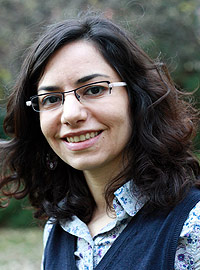Study and production of smoke ionic detectors without radioactive source

Zohreh Mokhtari, doctorante. Crédits : ESPCI ParisTechOne of the most effective smoke detectors is the ionic smoke detector. However, the present ionic detectors work thanks to a radioactive source, which is no longer favorable mainly because of difficult and expensive recycling processes.
The present study has been carried out on new ionic detectors using different ion sources than radioactive ones. Three types of ionic smoke detectors are presented. The first is based on the photoelectric effect, while second and third are based on Corona discharge phenomena. Due to its high consumption, the photoelectric detector is not compatible with smoke detector applications while detectors based on a Corona discharge give very good results.
Two prototypes of ionic smoke detector based on the Corona discharge phenomenon have been realized. For the first prototype, the charges produced by Corona effect are slowed down in the drift chamber to better interact with smoke particles. The current produced by these charges is strongly decreased in the presence of smoke, which allows the detection. For the second prototype, the decrease of Corona threshold in the air in the presence of smoke particles has been used. Under an intermediate voltage, the discharge current is almost zero in the absence of smoke. As soon as the smoke enters the detector, this current increases strongly and the alarm triggers.
The studied and realized ionic detectors have been tested several times in different environmental situations and their responses have been compared to reference detectors. The ionic detectors give very interesting results from the point of view of sensibility as well as stability in constrained environments. Besides their consumption stay at a very low level, compatible with the fire detection applications.







